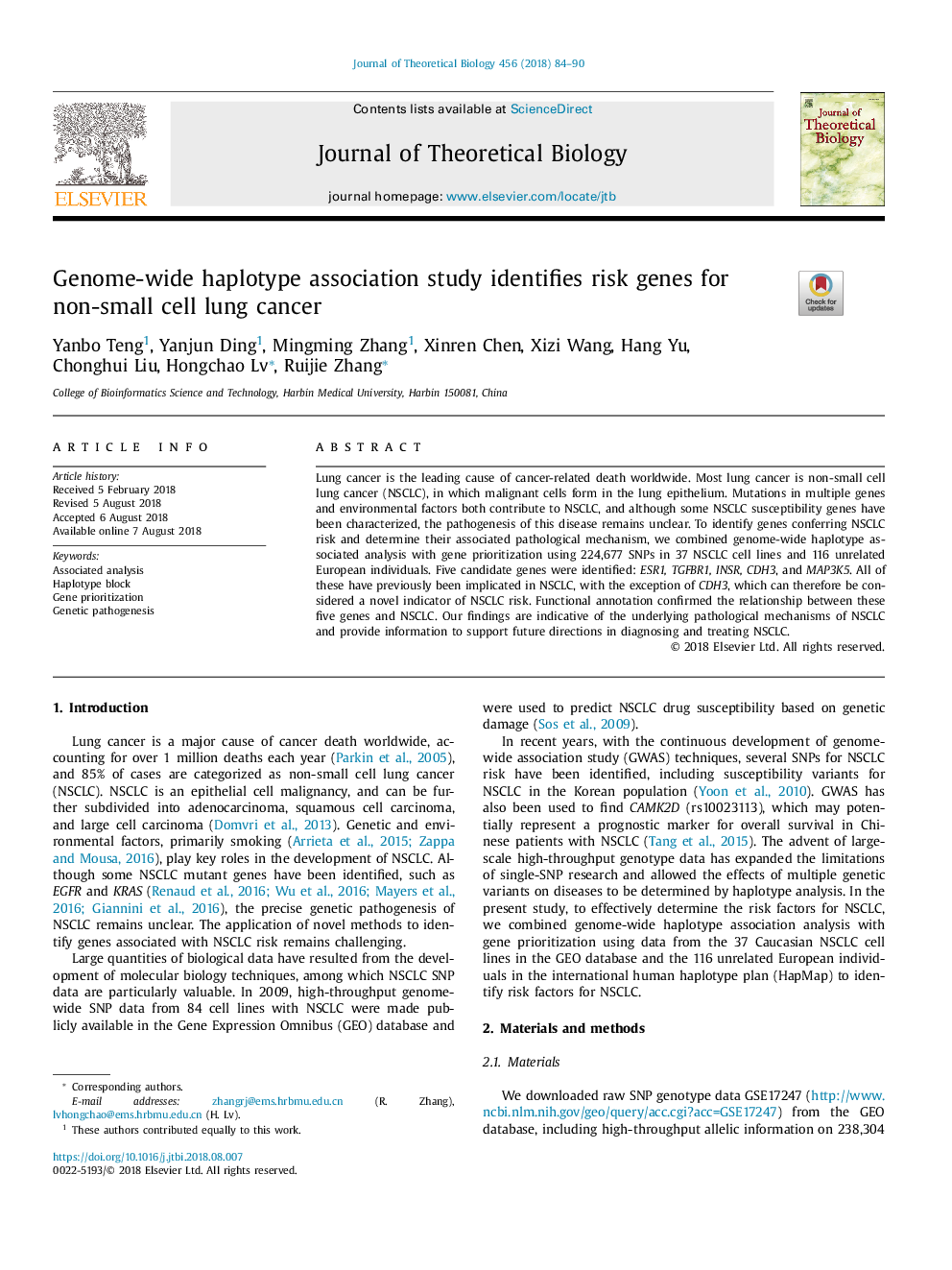| Article ID | Journal | Published Year | Pages | File Type |
|---|---|---|---|---|
| 8876438 | Journal of Theoretical Biology | 2018 | 7 Pages |
Abstract
Lung cancer is the leading cause of cancer-related death worldwide. Most lung cancer is non-small cell lung cancer (NSCLC), in which malignant cells form in the lung epithelium. Mutations in multiple genes and environmental factors both contribute to NSCLC, and although some NSCLC susceptibility genes have been characterized, the pathogenesis of this disease remains unclear. To identify genes conferring NSCLC risk and determine their associated pathological mechanism, we combined genome-wide haplotype associated analysis with gene prioritization using 224,677 SNPs in 37 NSCLC cell lines and 116 unrelated European individuals. Five candidate genes were identified: ESR1, TGFBR1, INSR, CDH3, and MAP3K5. All of these have previously been implicated in NSCLC, with the exception of CDH3, which can therefore be considered a novel indicator of NSCLC risk. Functional annotation confirmed the relationship between these five genes and NSCLC. Our findings are indicative of the underlying pathological mechanisms of NSCLC and provide information to support future directions in diagnosing and treating NSCLC.
Keywords
Related Topics
Life Sciences
Agricultural and Biological Sciences
Agricultural and Biological Sciences (General)
Authors
Teng Yanbo, Ding Yanjun, Zhang Mingming, Chen Xinren, Wang Xizi, Yu Hang, Liu Chonghui, Lv Hongchao, Zhang Ruijie,
